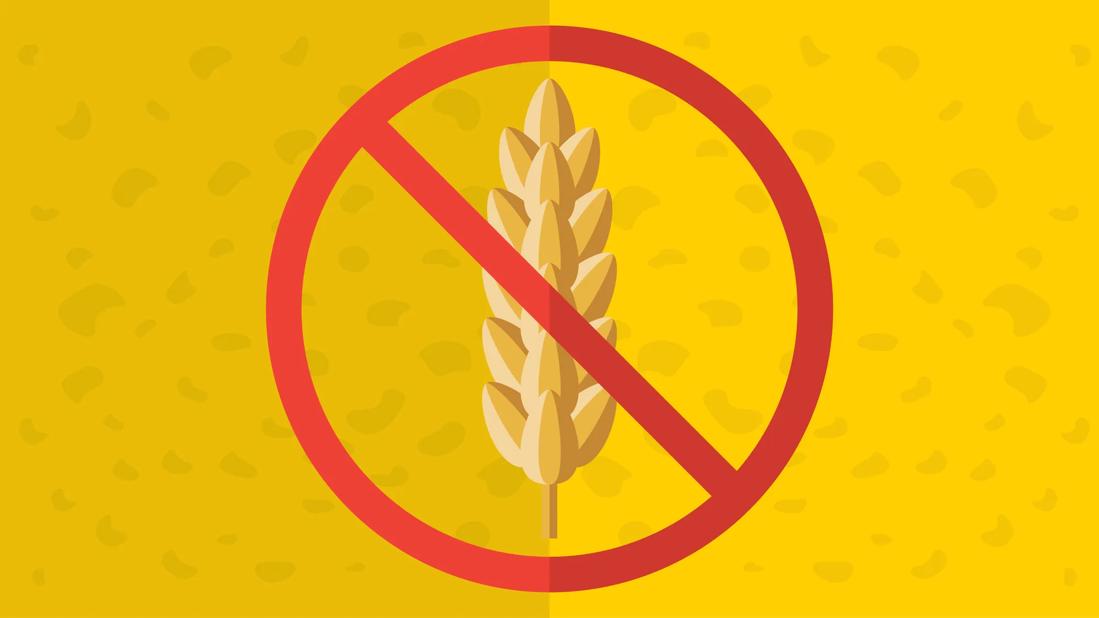Family history can increase your risk of developing this autoimmune disorder — you may want to see a healthcare provider for screening

Family history is significant when it comes to celiac disease, a genetic disorder that can trigger damaging reactions in your digestive system if you eat foods that contain gluten.
Advertisement
Cleveland Clinic is a non-profit academic medical center. Advertising on our site helps support our mission. We do not endorse non-Cleveland Clinic products or services. Policy
While celiac disease affects about 1% of the world’s population, you are 10 times more likely to be diagnosed with it if you have a parent, sibling or child with the condition, according to the Celiac Disease Foundation.
Let’s look at the hereditary connection of celiac disease with gastroenterologist Alberto Rubio Tapia, MD.
Your genes, which you inherit from your biological parents, serve as your body’s internal building blocks. They’re what make you uniquely you. And carrying certain genes can make a person more likely to develop celiac disease.
Two genes closely linked to celiac disease are HLA-DQ2 and HLA-DQ8. Nearly everyone who’s diagnosed with celiac disease carries at least one of these two genes that they inherited from their mother or father, says Dr. Rubio Tapia.
But having those genes DOES NOT mean you’re destined to have celiac disease. In fact, it’s estimated that one-third of the population carries one of those genes without showing any signs of the disorder.
“Genes are a risk factor for the disease,” Dr. Rubio Tapia clarifies, “but they do not dictate whether you will develop the condition.”
Celiac disease is an autoimmune disorder — a type of condition where your immune system overreacts to something it views as a threat. In the process, it harms your body while trying to protect it. (In celiac disease, the “threat” is gluten, a protein in wheat and other grains.)
Advertisement
There are more than 100 different autoimmune diseases, notes Dr. Rubio Tapia, and one autoimmune disease may trigger another if they share common genes.
That’s why you’re more likely to have celiac disease if you have an autoimmune disease like:
Celiac disease is also more common in people with chromosomal disorders, such as Down syndrome, Turner syndrome or Williams syndrome.
In addition, there are theories that celiac disease can be triggered by an event (such as a surgery or illness) that overtaxes your immune system. Some speculate about a connection with gut health, too. Research is ongoing to explore these concepts.
Celiac disease can begin at any age after gluten has been introduced to your diet.
Video content: This video is available to watch online.
View video online (https://cdnapisec.kaltura.com/p/2207941/sp/220794100/playManifest/entryId/1_sxyjai9r/flavorId/1_5f3sgelj/format/url/protocol/https/a.mp4)
Symptoms vary widely and require a gluten-free diet for management.
If you know that you’re at increased risk for celiac disease because it runs in your immediate family, Dr. Rubio Tapia suggests talking to a healthcare provider about being screened for the disorder.
A blood test to look for antibodies to gluten is typically the first step to check for the disease. Your provider may also suggest genetic testing or other tests.
“People sometimes live with celiac disease without even knowing it,” he notes. “They may dismiss symptoms like diarrhea, bloating, gassiness and fatigue, or might not notice any symptoms at all.”
That can be dangerous, given the damage celiac disease can cause to your small intestine. Left untreated, the disorder can lead to nutritional deficiencies, bone disorders and other long-term health problems.
If testing shows you have celiac disease, you can manage the condition by avoiding foods with gluten. Eliminating gluten from your diet typically brings immediate results.
But without confirmation that you have celiac disease, Dr. Rubio Tapia cautions against adopting a gluten-free diet. “We don’t want someone to start a lifelong gluten-free diet if they don’t have a proper diagnosis and don’t need to do so.”
Advertisement

Sign up for our Health Essentials emails for expert guidance on nutrition, fitness, sleep, skin care and more.
Learn more about our editorial process.
Advertisement

The conditions have similar symptoms, but are very different

Delays in growth, stomach aches and bathroom issues are all symptoms of this serious digestive condition

It’s more than just avoiding gluten — it’s also important to focus on your mental and emotional health

The caffeine and natural acids in coffee may trigger acid reflux, but there are ways to lessen the effects

Wait a few hours, then start with water or ice chips, graduating to clear liquids and then, soft, bland foods

Eating a healthy diet, reducing stress, and focusing on exercise and sleep can help keep your digestive system in top form

People with an inflamed esophagus may also have other conditions that cause a nagging, persistent cough

The gluten-free, fiber-rich superfood supports gut and heart health and can help with diabetes management

Although it could be used as a moisturizer, this new trend is not recommended

Communicating clear limits helps protect your time, energy and emotional well-being

High cholesterol can be genetic, but testing and treatment can lower your heart disease risk